Waste treatment in the oil and gas industry is not just an obligation, but also a commitment to environmental conservation. In this process, the use of chemistry plays an important role, not only ensuring that waste is processed safely, but also guaranteeing effectiveness and efficiency. This article will explain in depth how the use of chemistry in oil and gas industry waste treatment provides an effective and environmentally sustainable solution. By understanding the processes and chemical components involved, we can appreciate how the industry manages to minimize its environmental impact, while still meeting stringent waste treatment standards. This includes the use of advanced technologies and environmentally friendly chemicals to treat waste in a safer and more efficient manner, emphasizing the importance of innovation and environmental responsibility in every aspect of oil and gas industry operations.
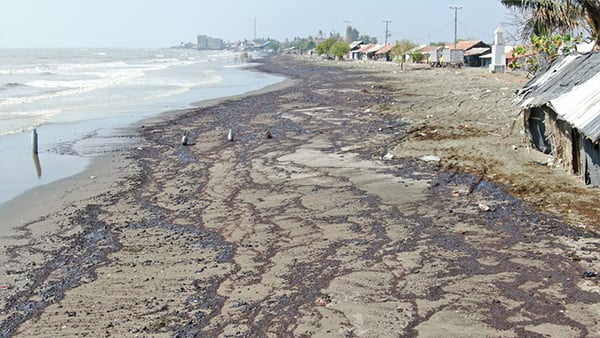
Definition and Importance of Waste Treatment in the Oil and Gas Industry
The oil and gas industry is one of the main sectors that generates large amounts of potentially hazardous waste. These wastes, if not treated properly, can have significant negative impacts on the environment, including water and soil pollution. Therefore, effective waste treatment is key to protecting the environment. This process not only involves physically managing the waste, but also utilizing different types of chemistry specifically designed to improve the quality and safety of sewage treatment.
The importance of sewage treatment lies not only in meeting environmental regulations but also in maintaining the sustainability of natural resources. The application of advanced and environmentally friendly waste treatment technologies helps ensure that the oil and gas industry can operate with minimal environmental impact. In addition, this process also opens up opportunities for the reutilization of treated wastewater, which can provide economic benefits while reducing the use of clean water resources. This efficient and innovative waste handling is an important part of the social and environmental responsibility of the oil and gas industry. By adopting greener and more responsible methods, the industry is contributing to the preservation of the environment and the reduction of its carbon footprint, which is increasingly becoming a key focus in today's globalized era. This process also reflects the industry's commitment to sustainable development, where the entire operational cycle, including waste management, is regulated to minimize negative impacts on the environment and society. Thus, responsible and effective waste treatment not only helps to comply with regulations, but also enhances the reputation and social acceptance of the oil and gas industry.
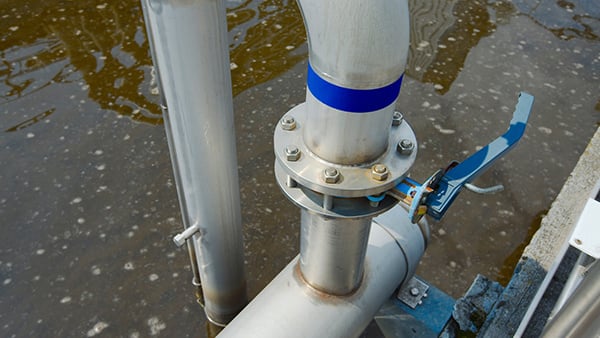
Types of Chemicals Used in Sewage Treatment
The chemicals used in oil and gas industry effluent treatment are diverse, each with a specialized function. Coagulants, such as alum and polymers, are used to agglomerate small particles for easier separation from water. Flocculants aid in the settling process, increasing particle separation efficiency. pH adjusters are used to balance the acidity or alkaline level of wastewater, which is important for subsequent chemical processes as well as ensuring safety for the environment when wastewater is discharged.
Additionally, chemicals such as oxidants and reductants are used to alter the chemical composition of contaminants, facilitating further sewage treatment processes. Biocides are often used to control unwanted microbial growth. The use of these chemicals must be done carefully and in accordance with set standards to avoid unwanted side effects. Research and development plays an important role in finding effective and environmentally friendly chemical formulations.
Additionally, the use of adsorbents such as activated carbon or zeolite is also important in removing organic and inorganic contaminants from wastewater. This process enables sewage treatment to be more efficient in reducing contaminant concentrations to safe levels. Nanotechnologies, such as nanoparticles used for advanced treatment, are also a recent trend in industrial effluent treatment. These nanoparticles are able to treat contaminants at the molecular level, providing a more effective and efficient solution. With these technological advancements, the oil and gas industry continues to adapt and innovate to come up with more effective, efficient and sustainable waste treatment methods, in line with their commitment to environmental responsibility.
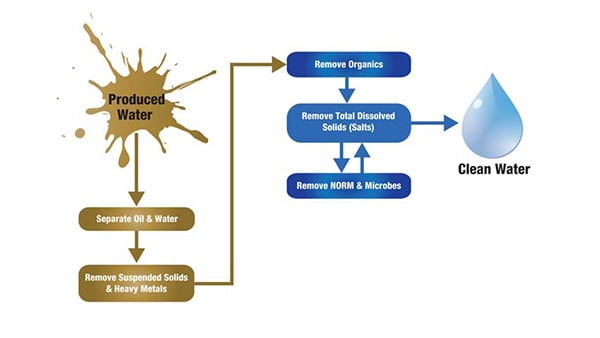
Chemical Processes and Applications in Sewage Treatment
The effluent treatment process involves several key stages, starting with primary treatment that separates solids from liquids. Then, secondary and tertiary stages involve the use of various chemistries to further treat and purify the wastewater. Each stage utilizes specific chemistries in a targeted manner to ensure treatment efficiency and effectiveness.
In the primary stage, physical processes such as filtration and sedimentation are used to reduce particles and dissolved solids. In the secondary stage, biological and chemical processes work together to break down smaller, hard-to-separate organic matter. This process often involves the use of microorganisms supplemented with nutrients and oxygen to accelerate decomposition. The tertiary stage, which is often optional, aims to improve the quality of wastewater so that it meets higher standards. This process can involve the use of advanced chemical methods such as filtration, adsorption, or other physical-chemical methods capable of removing contaminants to very low levels.
Additionally, in many cases, a disinfection process is also required to ensure the discharged wastewater is free of pathogenic microorganisms. Disinfection is typically performed using chlorine or more environmentally friendly alternatives such as ozonation or ultraviolet radiation. Each step in this treatment process is designed to reduce the environmental impact of oil and gas industry waste and ensure that the water released into the environment is safe and does not pose a health risk.
With the use of the right chemistry and careful processes, oil and gas industry effluent treatment becomes more than just regulatory compliance; it becomes a clear example of the industry's commitment to environmental preservation and sustainable management of natural resources.
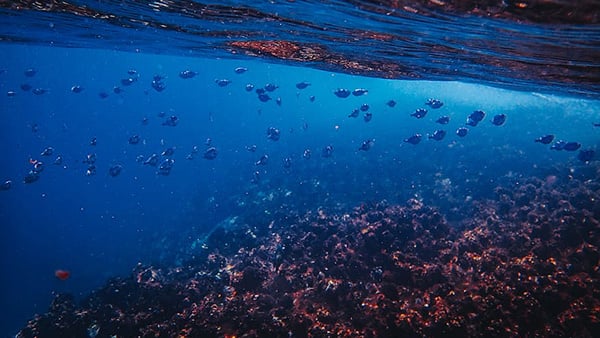
Environmental Benefits and Impacts of Chemical Use
The use of chemicals in waste treatment not only helps reduce pollution, but also contributes to the protection of aquatic life and the prevention of soil pollution. However, it is important to use these chemicals in a responsible manner. Proper chemical selection and controlled use can minimize the risk of negative impacts, such as microorganism resistance or accumulation of harmful chemicals in the environment.
The use of chemistry in sewage treatment also brings other benefits, such as increased efficiency in sewage treatment and the possibility of reusing treated wastewater. This not only reduces the need for clean water sources but also offers alternative water sources for industrial and agricultural purposes. On the other hand, the challenge in the use of chemicals is to ensure that they do not create new problems for the environment. For example, the use of chlorine for disinfection must be handled with care to avoid the formation of toxic compounds such as trihalomethanes.
In addition, there is a growing push to use more environmentally friendly chemicals in sewage treatment. The use of biochemicals, such as enzymes and targeted microorganisms, are examples of innovations that lead to more sustainable sewage treatment. This approach not only reduces the need for harmful chemicals but also aids in the process of regenerating the environment in a more natural way.
In a broader global context, the efficient and responsible use of chemistry in waste treatment by the oil and gas industry demonstrates their commitment to sustainable development goals. It is not only about meeting regulatory standards but also contributing to environmental preservation and overall public health. Therefore, the oil and gas industry is constantly looking for ways to improve their waste treatment processes, including through the use of more effective and environmentally friendly chemistry.
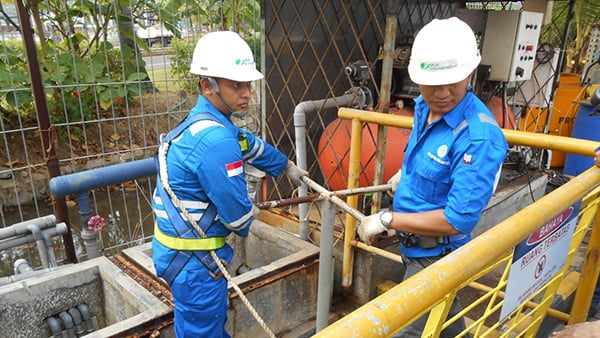
Beta Pramesti Asia's Role in Sewage Treatment Innovations and Solutions
As a leading water and sewage treatment company in Indonesia, Beta Pramesti Asia has a strategic role in providing innovative solutions to the oil and gas industry. With long experience dating back to 1985 and supported by a team of competent engineers, the company offers integrated services from engineering, construction, to maintenance. Another advantage is that equipment production is done in Indonesia, which guarantees spare parts availability and reduced downtime for clients.
Beta Pramesti Asia also emphasizes on developing sewage treatment technologies that are not only efficient but also environmentally friendly. This includes the application of the latest methods in biological, chemical, and physical treatment to treat oil and gas industry waste in a safer and more sustainable manner. The company actively innovates in creating customized solutions that suit the specific needs of each client, ensuring that the solutions provided are not only effective but also optimal in terms of cost and environmental impact.
In addition, Beta Pramesti Asia is committed to continuous research and development. Through collaboration with various research institutions and industry partners, the company is constantly exploring new technologies and more effective processing methods. One of the main focuses is the use of advanced technologies to minimize the use of harmful chemicals and reduce the carbon footprint of the waste treatment process. These efforts reflect not only Beta Pramesti Asia's environmental responsibility but also its position as a leader in sewage treatment innovation in Indonesia.
With an emphasis on integrated solutions, Beta Pramesti Asia provides not only equipment and technology, but also comprehensive consulting, training and technical support services. This ensures that clients receive not only the best solution for their needs but also ongoing support for efficient and sustainable operations.
Conclusion
The use of chemistry in the treatment of oil and gas industry effluents is an aspect that cannot be ignored in maintaining environmental sustainability. By choosing the right chemistry and efficient processes, the industry can operate with minimal negative impact on the environment. The active role of companies like Beta Pramesti Asia in providing effective and sustainable solutions is crucial in this endeavor.
The importance of this role is emphasized by climate change and the global need for more sustainable practices. Beta Pramesti Asia's efforts in introducing environmentally friendly sewage treatment innovations and technologies demonstrate their commitment to sustainable development. By implementing effective effluent treatment solutions, the oil and gas industry not only meets environmental standards but also contributes to the overall health and well-being of society.
-
Visit this link for more information on oil and gas chemical products and services. Explore our range of oil and gas chemical products to gain access to efficient and environmentally friendly waste treatment solutions, but also support from a team of experts dedicated to the success and sustainability of your project.
Contact us today to find out more about our offerings and how we can be a strategic partner in your industrial waste treatment efforts.
